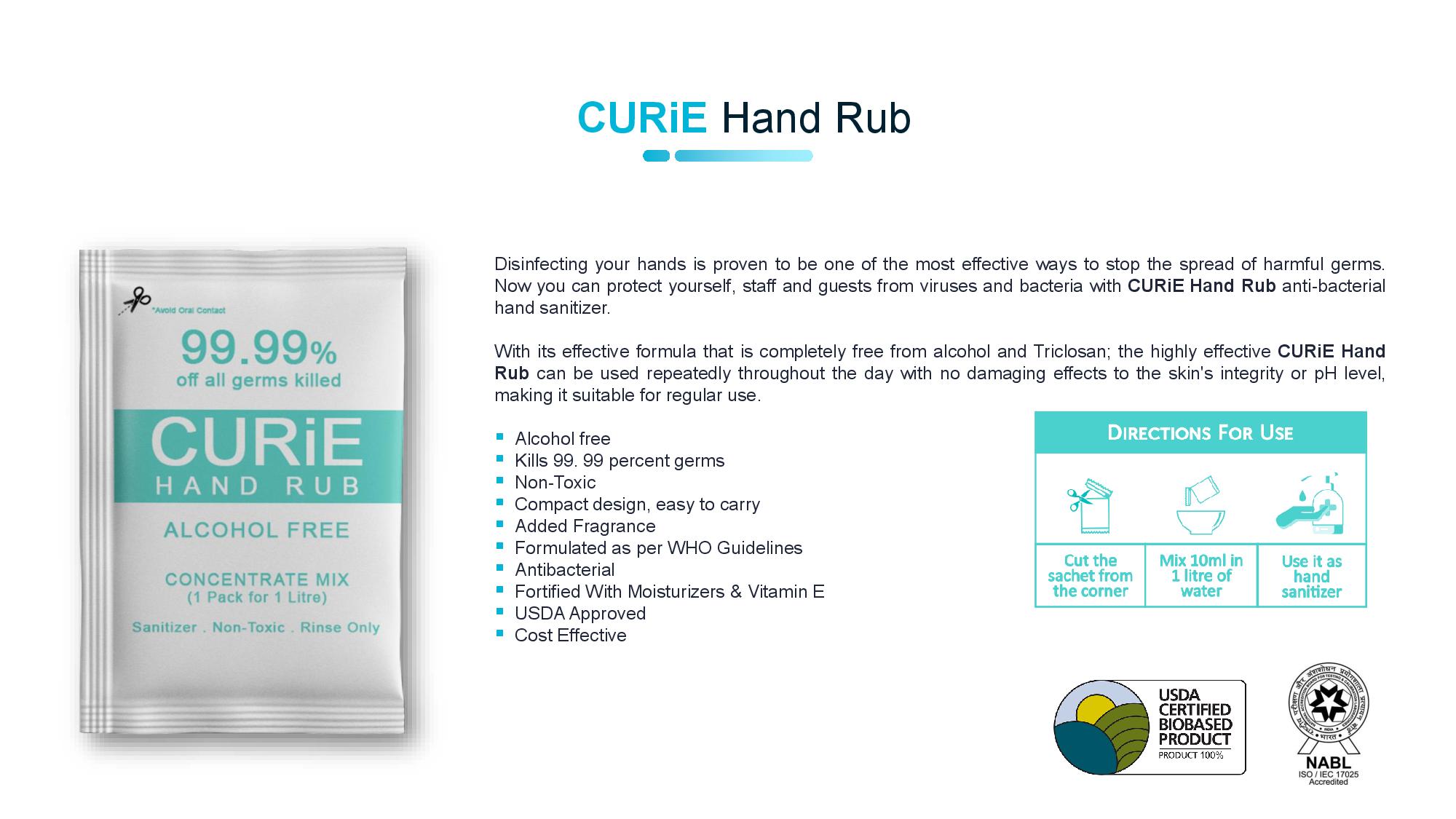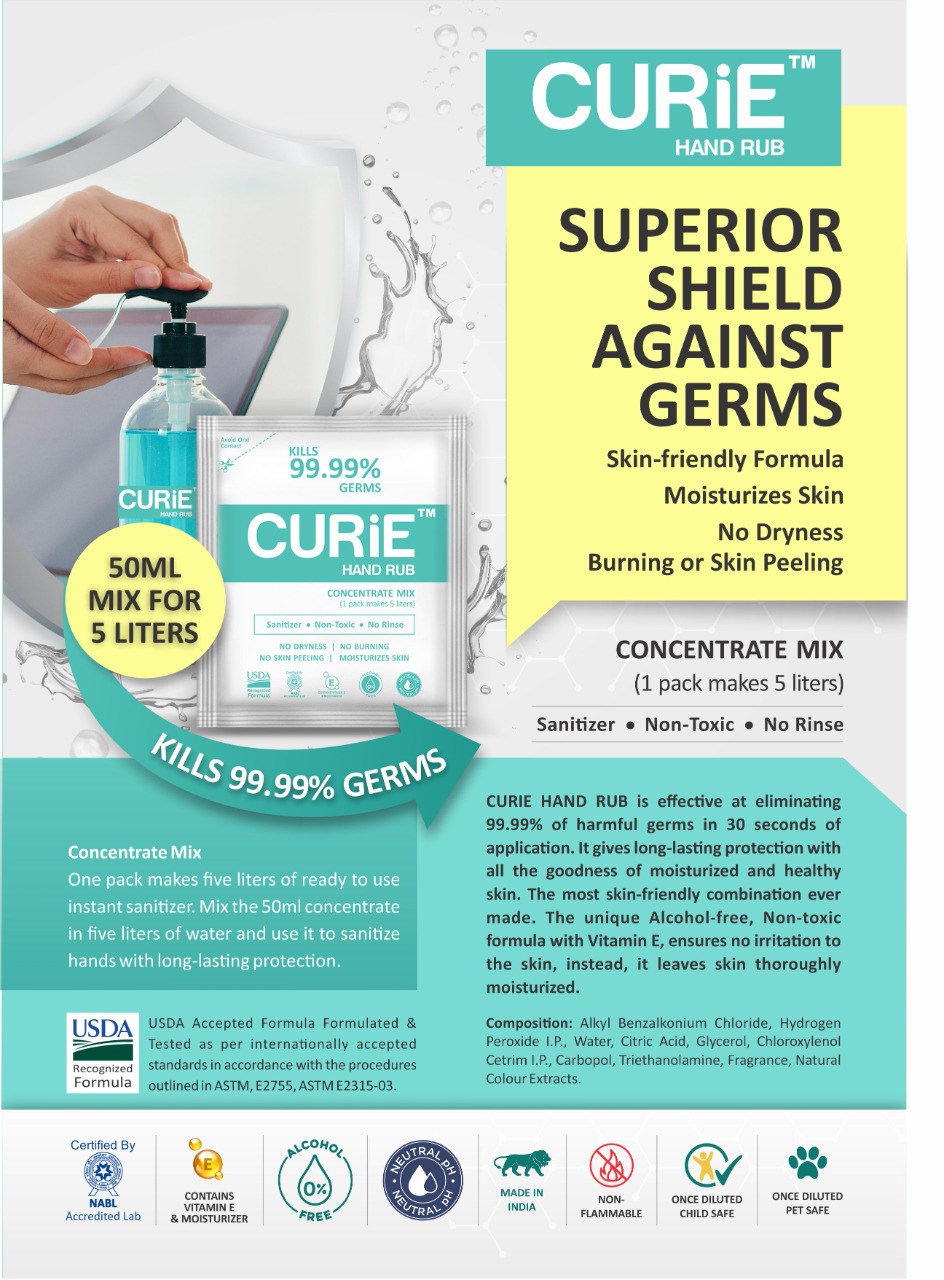

FAQS
1. Triclosan-free
Why you should use Triclosan-Free sanitizers?
Know the Triclosan!
Triclosan is a synthetic chemical with antibacterial properties. Introduced in 1972, Triclosan is an ingredient added to many consumer products intended to reduce or prevent bacterial contamination. Triclosan is commonly added to some antibacterial soaps, body washes, toothpastes, and some cosmetics.
Firstly it was introduced to keep medical instruments sterile. However, over the last decade, this chemical is becoming ubiquitous.
Why Triclosan is hazardous?
Triclosan is a known endocrine disruptor and a suspected carcinogen chemical. There is good reason to believe that the overuse of products with triclosan has contributed to bacterial resistance in the same way we are cautioned against the use of antibiotics. The persistent usage of triclosan affects water life as triclosan being washed down from our drains daily.
Triclosan is also lipophilic, which means it can be absorbed into your fat for long periods of time, and as reported by Scientific American, triclosan is now detectable in human breast milk, blood, and urine samples. Environmental Health Perspectives (EHP) found the chemical in 75% of urine samples tested for a study focused on triclosan. And furthermore, the Center for Disease Control and Prevention detected triclosan in 58% of US waterways.
Triclosan has the following effects on human health:
• Abnormal endocrine system/thyroid hormone signalling.
• Weakening of the immune system.
• At an early age, children exposed to antibacterial products like triclosan, have higher chances of developing allergies, asthma and eczema.
• Uncontrolled cell growth.
• Developmental and reproductive toxicity.
What FDA says?
Food and Drug Administration (FDA) announced in 2017 that triclosan is not generally recognized as safe and effective for antiseptic products intended for use in health care settings. In 2016, the FDA also imposed a ban over-the-counter consumer antiseptic wash products containing triclosan from being marketed to consumers. These products include liquid, foam and gel hand soaps, bar soaps, and body washes. The primary reason behind the ban was that manufacturers failed to prove that triclosan is safe for daily use over a long period.
According to the FDA, Some short-term animal studies have shown that exposure to high doses of triclosan is associated with a decrease in the levels of some thyroid hormones, i.e. triclosan alters hormone regulation. Other scientific studies in bacteria have raised the possibility that exposure to triclosan contributes to making bacteria resistant to antibiotics
Choose the Triclosan-Free Way!
Triclosan is not at all an essential ingredient in many products. Use triclosan-free soap and triclosan-free hand sanitizer!
2. Alcohol-Free
Alcohol or Alcohol-Free Sanitizer, Which one to choose?
Hand sanitizer is a common item in our day-to-day life. Be it on our desktops, in our bags, as well as grocery stores, gyms or other facilities we all frequently visit. Hand sanitizers shield us from dreadful germs, bacteria, viruses, and other pathogens that threaten our health every day.
You must be wondering with many questions. Which hand sanitizer works the best? Or which hand sanitizer is the most effective one to use? Alcohol-free or hand sanitizer with alcohol? Let us find out.
How alcohol based sanitizers are harmful?
Alcohol-based sanitizers contain one active ingredient; either alcohol or isopropanol. These sanitizers are effective antiseptic designed to kill germs and bacteria.
1. The common side-effect often associated with the continuous use of alcohol-based hand sanitizers is severe dryness and cracking that it causes on hands. The alcohol strips away oils in your skin that retains moisture causing dryness. The temporary absence of these oils can lead to increased skin irritation on the hands. It can even lead to symptoms of dermatitis.
2. Alcohol in sanitizer also kills-off good bacteria from the surface of the skin. Our entire body is covered with bacteria, and if you remove those good bacteria, chances of replacing good ones with potentially harmful bacteria increases. That’s why we are protected with naturally good bacteria.
3. Alcohol-based hand sanitizer lowers the skin barrier function and renders the skin membrane more permeable to harmful chemicals.
4. Ingestion of alcohol-based hand sanitizers can pose a serious threat and even alcohol poisoning, particularly in young children.
5. Alcohol-based formulations are flammable, which can compromise a building’s safety if they fall into the wrong hands.
6. If frequent hand sanitizing is required, repeated use of an alcohol-based hand sanitizer can irritate skin and strip away natural, protective oils needed for healthy skincare.
Why Alcohol-Free Hand Sanitizers Are Good?
Usage of alcohol can be harsh on the skin and can be flammable. An alcohol-free hand sanitizer uses a different active ingredient to kill germs. CURiE lotion and Veggie wash use No Alcohol; instead, it uses Alkyl Benzalkonium Chloride and Chlorhexidine Gluconate as an active ingredient respectively.
Curie Hand Lotion and Veggie wash is effective at eliminating 99.99% of harmful germs in 30 seconds of application. It gives long-lasting protection with all the goodness of moisturized and healthy skin.
The USDA Accepted Formula and The most skin-friendly combination ever made. The unique Alcohol-free, Non-toxic formula with Vitamin E, ensures no irritation to the skin, instead, it leaves skin thoroughly moisturized.
Benefits of Alcohol-free Hand Sanitizers:-
• Safe, non-flammable formula
• Prevents alcohol consumption and poisoning
• Will not dry skin like alcohol-based sanitizers
• Kills 99.99% of common germs in 30 seconds
• No water needed; simply rub in and let dry
Choose the Economical and Alcohol-Free Way!
CURiE hand lotion and Veggie wash are more cost-effective than other alcohol-based products. As an additional benefit, they can be used notably at restaurants, temples and foodservice locations too.